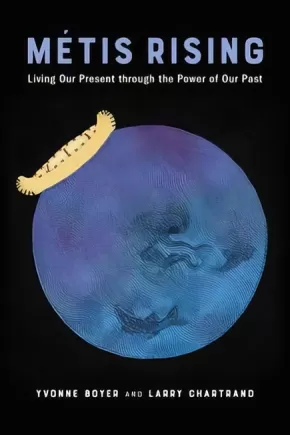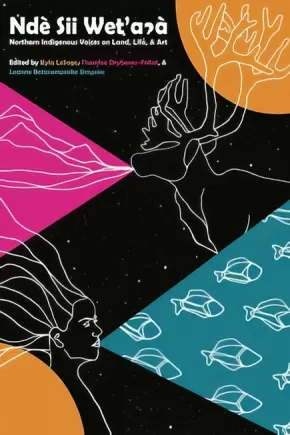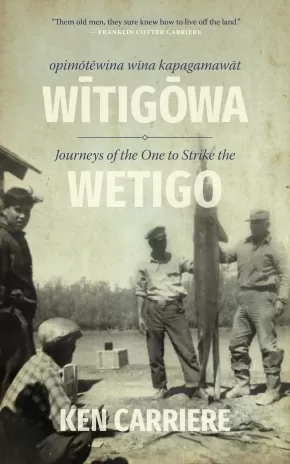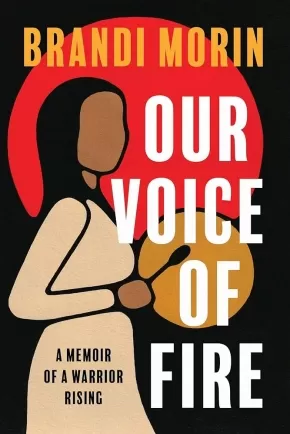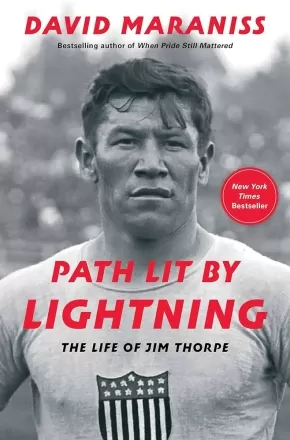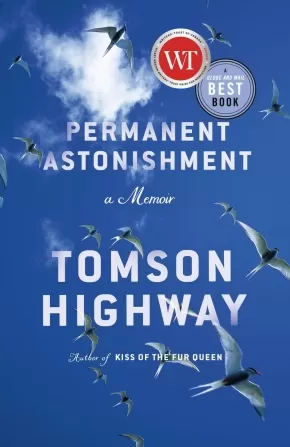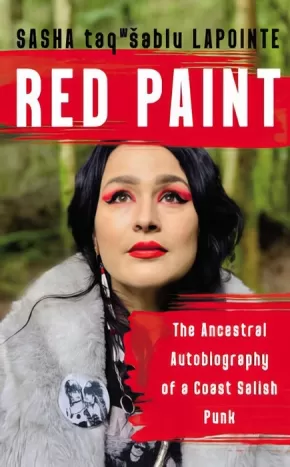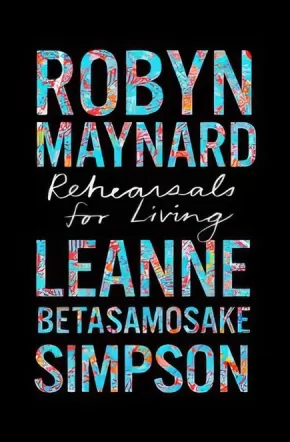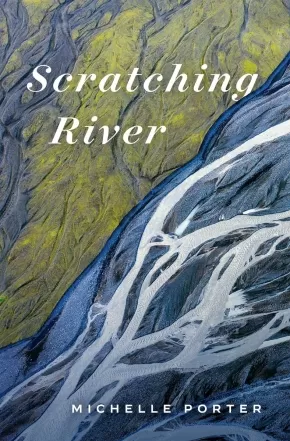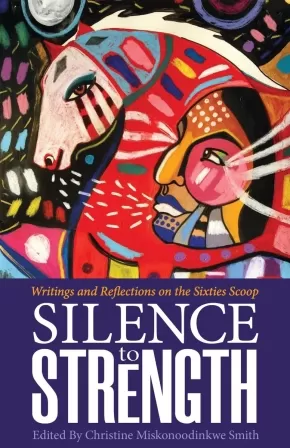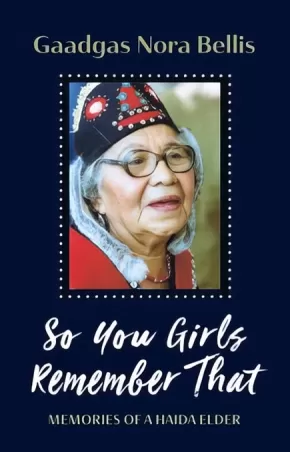Biographies
Synopsis:
Métis Rising draws on a remarkable cross-section of perspectives to tell the histories, stories, and dreams of people from varied backgrounds, demonstrating that there is no single Métis experience – only a common sense of belonging and a commitment to justice.
The contributors to this unique collection, most of whom are Métis themselves, examine often-neglected aspects of Métis existence in Canada. They trace a turbulent course, illustrating how Métis leaders were born out of the need to address abhorrent social and economic disparities following the Métis–Canadian war of 1885. They talk about the long and arduous journey to rebuild the Métis nation from a once marginalized and defeated people; their accounts ranging from personal reflections on identity to tales of advocacy against poverty and poor housing. And they address the indictment of the jurisdictional gap whereby neither federal nor provincial governments would accept governance responsibility towards Métis people.
Métis Rising is an extraordinary work that exemplifies how contemporary Métis identity has been forged by social, economic, and political concerns into a force to be reckoned with.
A must-read not only for scholars and students of Métis and Indigenous studies but for lawyers, policymakers, and all Canadians who wish a broader understanding of this country’s colonial past.
Additional Information
280 pages | 6.00" x 9.00" | 3 b&w illus., 2 maps, 8 charts, 3 tables | Hardcover
Synopsis:
In September 2015, Sheila North was declared the Grand Chief of Manitoba Keewatinowi Okimakanak (MKO), the first woman elected to the position. Known as a “bridge builder”, North is a member of Bunibonibee Cree Nation. North’s work in advocacy journalism, communications, and economic development harnessed her passion for drawing focus to systemic racism faced by Indigenous women and girls. She is the creator of the widely used hashtag #MMIW. In her memoir, Sheila North shares the stories of the events that shaped her, and the violence that nearly stood in the way of her achieving her dreams. Through perseverance and resilience, she not only survived, she flourished.
Additional Information
232 pages | 6.00" x 9.00" | Paperback
Synopsis:
We all share a common humanity. No matter how long or difficult the path ahead, we are all one.
Reconciliation belongs to everyone. In this profound book, Chief Robert Joseph, globally recognized peacebuilder and Hereditary Chief of the Gwawaenuk People, traces his journey from his childhood surviving residential school to his present-day role as a leader who inspires individual hope, collective change, and global transformation.
Before we get to know where we are going, we need to know where we came from. Reconciliation represents a long way forward, but it is a pathway toward our higher humanity, our highest selves, and an understanding that everybody matters. In Namwayut, Chief Joseph teaches us to transform our relationships with ourselves and each other. As we learn about, honour, and respect the truth of the stories we tell, we can also discover how to dismantle the walls of discrimination, hatred, and racism in our society.
Chief Joseph is known as one of the leading voices on peacebuilding in our time, and his dedication to reconciliation has been recognized with multiple honorary degrees and awards. As one of the remaining first-language speakers of Kwak'wala, his wisdom is grounded in Indigenous ways of knowing while making space for something bigger and better for all of us.
Additional Information
200 pages | 5.25" x 8.00" | Hardcover
Synopsis:
Ndè Sii Wet'aà: Northern Indigenous Voices on Land, Life, & Art is a collection of essays, interviews, short stories and poetry written by emerging and established northern Indigenous writers and artists. Centred on land, cultural practice and northern life, this ground-breaking collection shares wealth of Dene (Gwichʼin, Sahtú, Dehcho, Tłı̨chǫ, Saysi, Kaska, Dënesuiné, W?ìl?ìdeh ) Inuit, Alutiiq, Inuvialuit, Métis, Nêhiyawak (Cree), Northern Tutchone, and Tanana Athabascan creative brilliance. Ndè Sii Wet'aà holds up the voices of women and Two Spirit and Queer writers to create a chorus of voices reflecting a deep love of Indigenous cultures, languages, homelands and the north. The book includes a series of pieces and interviews from established northern artists and musicians including Leela Gilday, Randy Baillargeon (lead singer for the W?ìl?ìdeh Drummers), Inuit sisters, song-writers and throat singers Tiffany Ayalik and Inuksuk Mackay of Piqsiq, Two Spirit Vuntut Gwitchin visual artist Jeneen Frei Njootli, Nunavik singer-songwriters Elisapie and Beatrice Deere and visual artist Camille Georgeson-Usher. Ndè Sii Wet'aà also includes writing from well-known northern writers Siku Allooloo, T'áncháy Redvers (Fireweed), Antione Mountain (From Bear Rock Mountain), Glen Coulthard (Red Skin, White Masks), Catherine Lafferty (Northern Wildflower, Land-Water-Sky) and Lianne Marie Leda Charlie, in amongst the best emerging writers in the north.
Additional Information
264 pages | 6.00" x 9.00" | Paperback
Synopsis:
A first-hand account of a Swampy Cree boy’s experiences growing up in the Saskatchewan River Delta, one of the world’s largest inland deltas and one of North America’s most important ecosystems.
Depicting an Indigenous lifestyle that existed in Northern Saskatchewan way past the Fur Trade era, Ken Carriere shares his first-hand account of experiences as a young boy helping his father trapping, fishing, and hunting in the Saskatchewan River Delta.
Opimōtēwina wīna kapagamawāt Wītigōwa / Journeys of The One to Strike the Wetigo contains interviews with elders, stories, personal photographs, and poetry, along with some original Swampy Cree translations.
Creating a vivid portrait of what it was like to live off the land, Carriere also reveals how hydro-electric dams and other Western endeavours have impacted the livelihoods of so many Northern communities.
Reviews
"Wow! This is an excellent resource for those engaged in, or interested in, land-based education. It gives a wonderful, engaging account of living on the land in the past and, to some extent, in the present day. It's also a good resource for N-dialect speakers." —Solomon Ratt, author of The Way I Remember and Beginning Cree
Additional Information
328 pages | 5.00" x 8.00" | Paperback
Synopsis:
A wildfire of a debut memoir by internationally recognized French/Cree/Iroquois journalist Brandi Morin set to transform the narrative around Indigenous Peoples.
Brandi Morin is known for her clear-eyed and empathetic reporting on Indigenous oppression in North America. She is also a survivor of the Missing and Murdered Indigenous Women and Girls crisis and uses her experience to tell the stories of those who did not survive the rampant violence. From her time as a foster kid and runaway who fell victim to predatory men and an oppressive system to her career as an internationally acclaimed journalist, Our Voice of Fire chronicles Morin’s journey to overcome enormous adversity and find her purpose, and her power, through journalism. This compelling, honest book is full of self-compassion and the purifying fire of a pursuit for justice.
Reviews
"Our Voice Of Fire is a searingly honest, thought-provoking, and ultimately empowering exploration of pain and the quest for justice. By sharing her stories with the world, Brandi Morin makes a beautiful proclamation that there can be a hopeful path through trauma without diminishing the significance of the trauma itself, both personal and intergenerational. These are stories that need to be told and stories that need to be read." — Dan Levy
"Brandi Morin is one of the most important Indigenous journalists and warriors of our time. Her raw, honest, and beautifully written story of her experiences, trauma, reliance, and perseverance is a must-read for all." — Crystal Echo Hawk, founder and executive director, IllumiNative
Additional Information
224 pages | 5.00" x 7.50" | Paperback
Synopsis:
A riveting new biography of America’s greatest all-around athlete by the bestselling author of the classic biography When Pride Still Mattered.
Jim Thorpe rose to world fame as a mythic talent who excelled at every sport. He won gold medals in the decathlon and pentathlon at the 1912 Stockholm Olympics, was an All-American football player at the Carlisle Indian School, the star of the first class of the Pro Football Hall of Fame, and played major league baseball for John McGraw’s New York Giants. Even in a golden age of sports celebrities, he was one of a kind.
But despite his colossal skills, Thorpe’s life was a struggle against the odds. As a member of the Sac and Fox Nation, he encountered duplicitous authorities who turned away from him when their reputations were at risk. At Carlisle, he dealt with the racist assimilationist philosophy “Kill the Indian, Save the Man.” His gold medals were unfairly rescinded because he had played minor league baseball. His later life was troubled by alcohol, broken marriages, and financial distress. He roamed from state to state and took bit parts in Hollywood, but even the film of his own life failed to improve his fortunes. But for all his travails, Thorpe did not succumb. The man survived, complications and all, and so did the myth.
Path Lit by Lightning is a great American story from a master biographer.
Reviews
“Path Lit By Lightning is a flat-out masterpiece. The story of Jim Thorpe, one of America’s greatest and most misunderstood heroes, is told in riveting detail by David Maraniss, one of our greatest biographers. The result is a portrait as powerful, dazzling, and nuanced as Thorpe himself.” — Jonathan Eig, author Luckiest Man, Opening Day and Ali: A Life
Additional Information
672 pages | 6.12" x 9.25" | Hardcover
Synopsis:
Capricious, big-hearted, joyful: an epic memoir from one of Canada’s most acclaimed Indigenous writers and performers.
Tomson Highway was born in a snowbank on an island in the sub-Arctic, the eleventh of twelve children in a nomadic, caribou-hunting Cree family. Growing up in a land of ten thousand lakes and islands, Tomson relished being pulled by dogsled beneath a night sky alive with stars, sucking the juices from roasted muskrat tails, and singing country music songs with his impossibly beautiful older sister and her teenaged friends. Surrounded by the love of his family and the vast, mesmerizing landscape they called home, his was in many ways an idyllic far-north childhood. But five of Tomson's siblings died in childhood, and Balazee and Joe Highway, who loved their surviving children profoundly, wanted their two youngest sons, Tomson and Rene, to enjoy opportunities as big as the world. And so when Tomson was six, he was flown south by float plane to attend a residential school. A year later Rene joined him to begin the rest of their education. In 1990 Rene Highway, a world-renowned dancer, died of an AIDS-related illness.
Permanent Astonishment: Growing Up in the Land of Snow and Sky is Tomson's extravagant embrace of his younger brother's final words: "Don't mourn me, be joyful." His memoir offers insights, both hilarious and profound, into the Cree experience of culture, conquest, and survival.
Additional Information
352 pages | 5.15" x 7.97" | Paperback
Synopsis:
An Indigenous artist blends the aesthetics of punk rock with the traditional spiritual practices of the women in her lineage in this bold, contemporary journey to reclaim her heritage and unleash her power and voice while searching for a permanent home.
Sasha taqʷšəblu LaPointe has always longed for a sense of home. When she was a child, her family moved around frequently, often staying in barely habitable church attics and trailers, dangerous places for young Sasha.
With little more to guide her than a passion for the thriving punk scene of the Pacific Northwest and a desire to live up to the responsibility of being the namesake of her beloved great-grandmother—a linguist who helped preserve her Indigenous language of Lushootseed—Sasha throws herself headlong into the world, determined to build a better future for herself and her people.
Set against a backdrop of the breathtaking beauty of Coast Salish ancestral land and imbued with the universal spirit of punk, Red Paint is ultimately a story of the ways we learn to find our true selves while fighting for our right to claim a place of our own.
Examining what it means to be vulnerable in love and in art, Sasha offers up an unblinking reckoning with personal traumas amplified by the collective historical traumas of colonialism and genocide that continue to haunt native peoples. Red Paint is an intersectional autobiography of lineage, resilience, and, above all, the ability to heal.
Awards
- Winner of the 2023 Pacific Northwest Book Award
Reviews
"Red Paint is a miraculous book. Sasha LaPointe walks us through the sites of her evisceration while rebuilding a home within her body using sturdy materials: rose quartz, cedar bark, red clay, and the words of her ancestors. With each potent sentence, she shows us what access to power looks like. She shows us how to become whole.” —Elissa Washuta, author of White Magic
"As luminous as the morning sun over the fir forests, Red Paint is a story of where strength takes us. Sasha taqwšəblu LaPointe goes looking to the past to help heal from terrible traumas, finding inspiration in her ancestors, the Salish people. This is a book destined to be a classic. Read it." —Rene Denfeld, bestselling author of The Child Finder
Additional Information
240 pages | 5.31" x 8.29" | Hardcover
Synopsis:
A revolutionary collaboration about the world we're living in now, between two of our most important contemporary thinkers, writers and activists.
When the world entered pandemic lockdown in spring 2020, Robyn Maynard, influential author of Policing Black Lives, and Leanne Betasamosake Simpson, renowned artist, musician, and author of Noopiming: The Cure for White Ladies, began writing each other letters—a gesture sparked by a desire for kinship and connection in a world shattering under the intersecting crises of pandemic, police killings, and climate catastrophe. These letters soon grew into a powerful exchange about where we go from here.
Rehearsals for Living is a captivating and visionary work—part debate, part dialogue, part lively and detailed familial correspondence between two razor-sharp writers. By articulating to each other Black and Indigenous perspectives on our unprecedented here and now, and reiterating the long-disavowed histories of slavery and colonization that have brought us to this moment, Maynard and Simpson create something new: an urgent demand for a different way forward, and a poetic call to dream up other ways of ordering earthly life.
Reviews
“This book must be read for its future vocabularies, its political intimacies, its careful assemblage of the materials of our activisms, and its generous and fulsome thinking.”—Dionne Brand, poet, novelist, and essayist
“Using the age-old practice of letter writing and the land itself as a palimpsest, Robyn Maynard and Leanne Betasamosake Simpson find common ground to challenge the moral legitimacy of the settler nation state, and reinscribe new ways of what it means to be beings who are human in the forensic landscapes of Canada. In Rehearsals for Living, two women, one Indigenous, the other Black and African-descended confront their shared yet different experiences of colonialism, provide new and subversive meanings to the colonial trope of being landed, the mechanism by which the land was (un)settled. Unflinchingly, and in long-overdue and profoundly-needed “reasonings” that reverberate with shared breath, Simpson and Maynard weave their ideas, thoughts and reflections and their deep caring for community and society through the network of issues that impact us today—the pandemic and the differentials in treatment for Black and Indigenous people, the role of BLM, abolition, the necessity of Nibi and homespace for the Nishnaabeg, the joys of living on the land, and parenting in the face of ecological and racial disasters are but a few of the challenges they grapple with. Rehearsals for Living is fundamental to understanding the interlocking, founding crimes of the Americas; necessary for remembering the many erased histories of the on-going struggle for justice, and altogether indispensable to those wanting to create possible solutions.”—M. NourbeSe Philip, author of Zong!
Additional Information
336 pages | 5.46" x 8.32" | Hardcover
Synopsis:
A powerful, often funny, always inspiring memoir from a beloved comedian, professional orator, actor, entertainer, gone all too soon.
Candy Palmater loved to connect with people. She lived for the stage, her effervescent presence on television and radio ignited and inspired audiences, touching them with her warm, often spicy humour as well as her positive message about love and kindness. And she always believed that it is never too late to pursue our dreams and that we should never allow others to negatively influence our life’s desires.
Candy described herself as a queer Mi’kmaw lawyer-turned-comic raised by bikers in rural New Brunswick and on the surface, she met with enormous success – on leaving government and the practice of law, she started a career as a stand-up comedian, which led to starring in five successful seasons of her own national TV show, hosting many radio shows and co-guest hosting CTV’s The Social, and landing a recurring role on a hot new sitcom in her fifties. But she is the first to tell you she made all kinds of mistakes and experienced all kinds of failure along the way. Running Down a Dream is Candy’s story, in her own words, of the highs, the lows, the moments of doubt, the turning points when she listened to her gut and tuned out all the people saying no. It’s also a tribute to her family and the love that always bolstered her, despite their own hard times. She shares her stories to inspire us to embrace our failures and to believe in ourselves. And most importantly, Running Down a Dream is a call to love ourselves for who we are.
The world lost Candy in late 2021, and yet she left us with this gift -- a memoir and a message that will inspire us for years to come.
Additional Information
304 pages | 6.00" x 9.00" | Hardcover
Synopsis:
Scratching River braids the voices of mother, brother, sister, ancestor, and river to create a story about environmental, personal, and collective healing.
This memoir revolves around a search for home for the author’s older brother, who is both autistic and schizophrenic, and an unexpected emotional journey that led to acceptance, understanding and, ultimately, reconciliation. Michelle Porter brings together the oral history of a Métis ancestor, studies of river morphology, and news clippings about abuse her older brother endured at a rural Alberta group home to tell a tale about love, survival, and hope. This book is a voice in your ear, urging you to explore your own braided histories and relationships.
Reviews
"Michelle Porter’s Scratching River is a stunning and ruminative poetic work of creative non-fiction that moves across time, geography, Métis history, and kinship. Porter honours her Métis family and ancestors through past, present, and future poetics. The interwoven narratives wrap around Porter’s mother, Porter’s own story as a daughter and sister, and her relationship with her older brother, who was diagnosed as schizophrenic and autistic, and abused in a rural Alberta group home. Scratching River illustrates the powerful journey of reconciliation, as Porter’s family reconnects amongst their ongoing movement, and relocation to find their way back to the river they share." — "Shannon Webb-Campbell, author of Lunar Tides and I Am a Body of Land"
Additional Information
184 pages | 5.25" x 8.00" | Paperback
Synopsis:
Part memoir, part cultural history, these memories of seven aunts holding home and family together tell a crucial, often overlooked story of women of the twentieth century.
They were German and English, Anishinaabe and French, born in the north woods and Midwestern farm country. They moved again and again, and they fought for each other when men turned mean, when money ran out, when babies—and there were so many—added more trouble but even more love. These are the aunties: Faye, who lived in California, and Lila, who lived just down the street; Doreen, who took on the bullies taunting her “mixed-blood” brothers and sisters; Gloria, who raised six children (no thanks to all of her “stupid husbands”); Betty, who left a marriage of indenture to a misogynistic southerner to find love and acceptance with a Norwegian logger; and Carol and Diane, who broke the warped molds of their own upbringing.
From the fabric of these women’s lives, Staci Lola Drouillard stitches a colorful quilt, its brightly patterned pieces as different as her aunties, yet alike in their warmth and spirit and resilience, their persistence in speaking for their generation. Seven Aunts is an inspired patchwork of memoir and reminiscence, poetry, testimony, love letters, and family lore.
In this multifaceted, unconventional portrait, Drouillard summons ways of life largely lost to history, even as the possibilities created by these women live on. Unfolding against a personal view of the settler invasion of the Midwest by men who farmed and logged, fished and hunted and mined, it reveals the true heart and soul of that history: the lives of the women who held together family, home, and community—women who defied expectations and overwhelming odds to make a place in the world for the next generation.
Reviews
"Seven Aunts is a celebration of the women in Staci Lola Drouillard’s family who struggled to escape a daunting legacy with unsung courage, humor, and unbreakable love for family. Far more than a family history, Seven Aunts is an honor song that reveals the everyday heroism of these women’s lives."—Diane Wilson, author of The Seed Keeper
"Seven Aunts gives us a unique and privileged insight to the intimate lives and history of a blended Indigenous and immigrant family in northern Minnesota. Staci Lola Drouillard has written with honesty and truth about ‘the treacherous beauty of life’ in a family rich in characters, in love and loss, all with great humor. Anaïs Nin wrote that reaching deep into the personal becomes universal. Seven Aunts is exactly that. It speaks to us of the universal love of family, the reality of historic social challenges, and the strength of the unbreakable bonds of knowing."—Hazel Belvo
Additional Information
320 pages | 5.50" x 8.50" | 7 b&w illustrations | Paperback
Synopsis:
From the 1960s through the 1980s the Canadian Children's Aid Society engaged in a large-scale program of removing First Nations children from their families and communities and adopting them out to non-Indigenous families. This systemic abduction of untold thousands of children came to be known as the Sixties Scoop. The lasting disruption from the loss of family and culture is only now starting to be spoken of publicly, as are stories of strength and survivance.
In Silence to Strength: Writings and Reflections on the 60s Scoop, editor Christine Miskonoodinkwe Smith gathers together contributions from twenty Sixties Scoop survivors from across the territories of Canada. This anthology includes poems, stories and personal essays from contributors such as Alice McKay, D.B. McLeod, David Montgomery, Doreen Parenteau, Tylor Pennock, Terry Swan, Lisa Wilder, and many more. Courageous writings and reflections that prove there is strength in telling a story, and power in ending the silence of the past.
Reviews
"This is an excellent collection and I recommend it to all who are interested in learning the truth about Indigenous Peoples by reading what they have written, not what has been written about them by non-Indigenous writers. The striking cover art is by George Littlechild, also a survivor of the Sixties Scoop." - MariJo Moore
Additional Information
140 pages | 5.50" x 8.50" | Paperback
Synopsis:
Collected wisdoms, reflections and stories from Indigenous Elder Naanii Nora of the Haida Nation.
So You Girls Remember That is an oral history of a Haida Elder, Naanii Nora, who lived from 1902 to 1997. A collaborative effort, this project was initiated and guided by Charlie Bellis and Maureen McNamara and was years in the making. The resulting book, compiled by Jenny Nelson, is a window into Nora’s life and her family—from the young girl singing all day in the canoe, bossing her brothers around or crossing Hecate Strait on her dad’s schooner, to the young woman making her way in the new white settlers’ town up the inlet, with music always a refrain—these are stories of childhood; of people and place, seasons and change; life stages and transitions such as moving and marriage; and Haida songs and meanings.
This book also contains the larger story of Nora’s times, a representation of changing political relationships between Canada and the Haida people and a personal part of the Haida tale.
What ultimately shines through is Nora’s singular and dynamic voice speaking with the wisdom of years. For example, on giving advice she says: “I like to give anybody advice because when you’re young you don’t know nothing on this world. What’s coming; what’s going … You have to remember it’s a steep hill; you’re right on the top. You slide down anytime if you don’t be careful.”
This is a work of great generosity, expressing Nora’s spirit of living—her joy, humour, spirituality and resourcefulness; her love of children, music and social life; her kindness, strong will and creativity; and her spirit that has nurtured a community and endures to this day.
Royalties will be donated to the Carl Hart Legacy Trust through the Haida Gwaii Community Foundation, to support the Rediscovery Camp at T'aalan Stl'ang.
Reviews
"You can tell if someone has ever met Naanii Nora Brown Bellis Yahgulanaas as the mere mention of her name will make them smile." –Michael Nicoll Yahgulanaas, author of Carpe Fin: A Haida Manga
"Reading my Nanny’s stories in So You Girls Remember That, filled me with emotions. It brought me back to Nanny’s strong warm hugs and her cheeky demeanor, memories of her cluttered house and all the time spent with her. As a Haida, and a father, I worry about the rapidly advancing world, where we are now and where we’re heading. Nanny has laid the blueprint for tackling such worries. Her words remind us to always believe in ourselves, and that love of family and community are essential, not only for survival but also for the flourishing of love, laughter and music." –Tyler Hugh Charlie Bellis, played the melodica in grades 6 and 7 at Tahayghen elementary school
Additional Information
240 pages | 5.50" x 8.50" | Paperback

